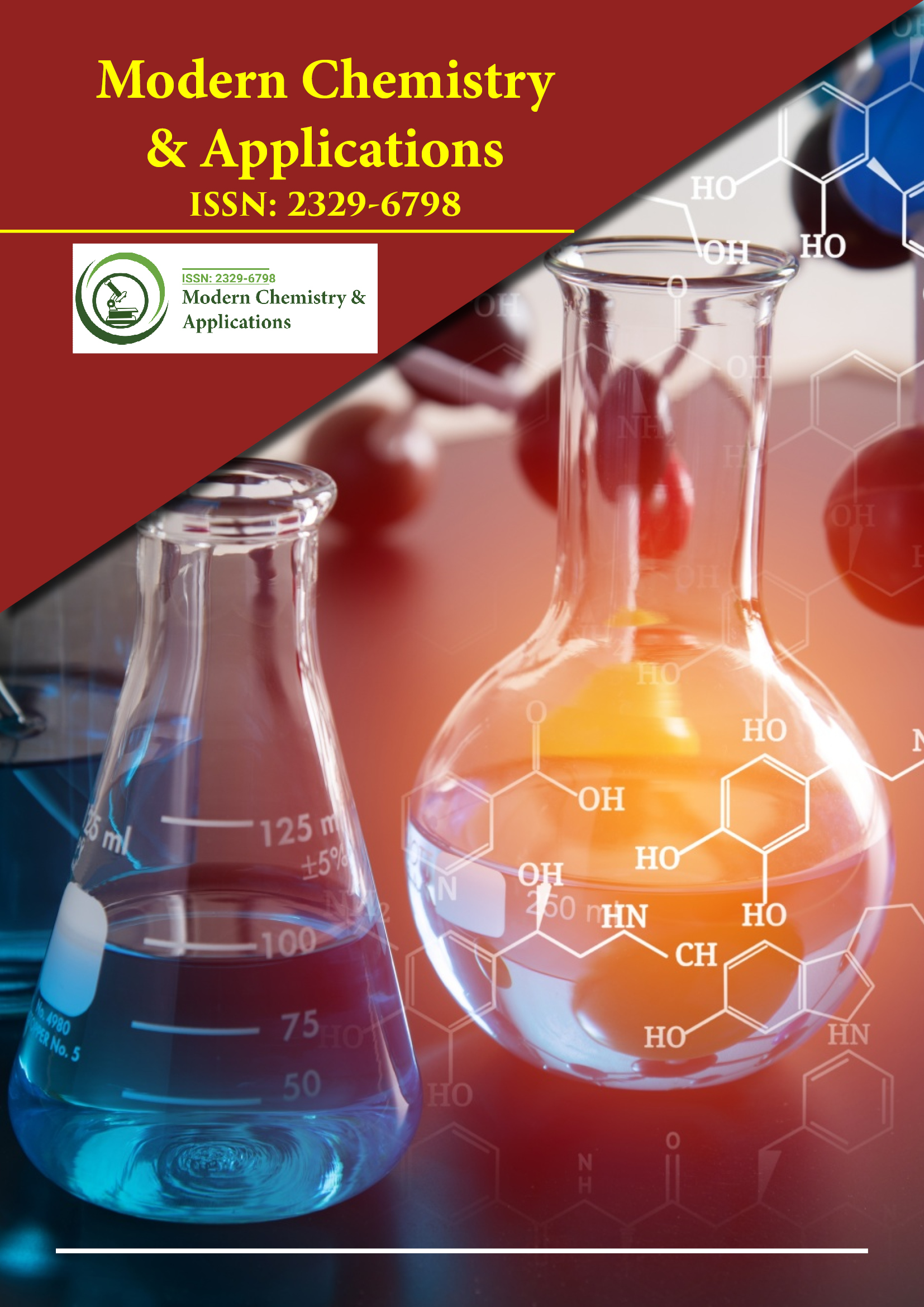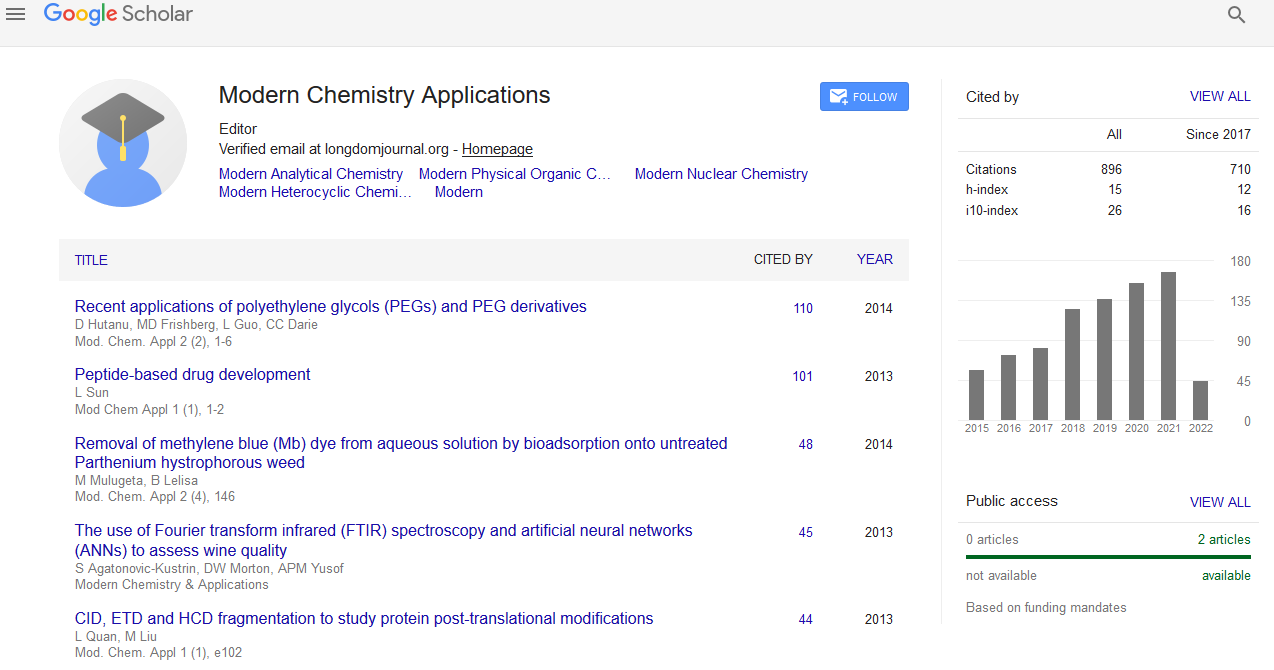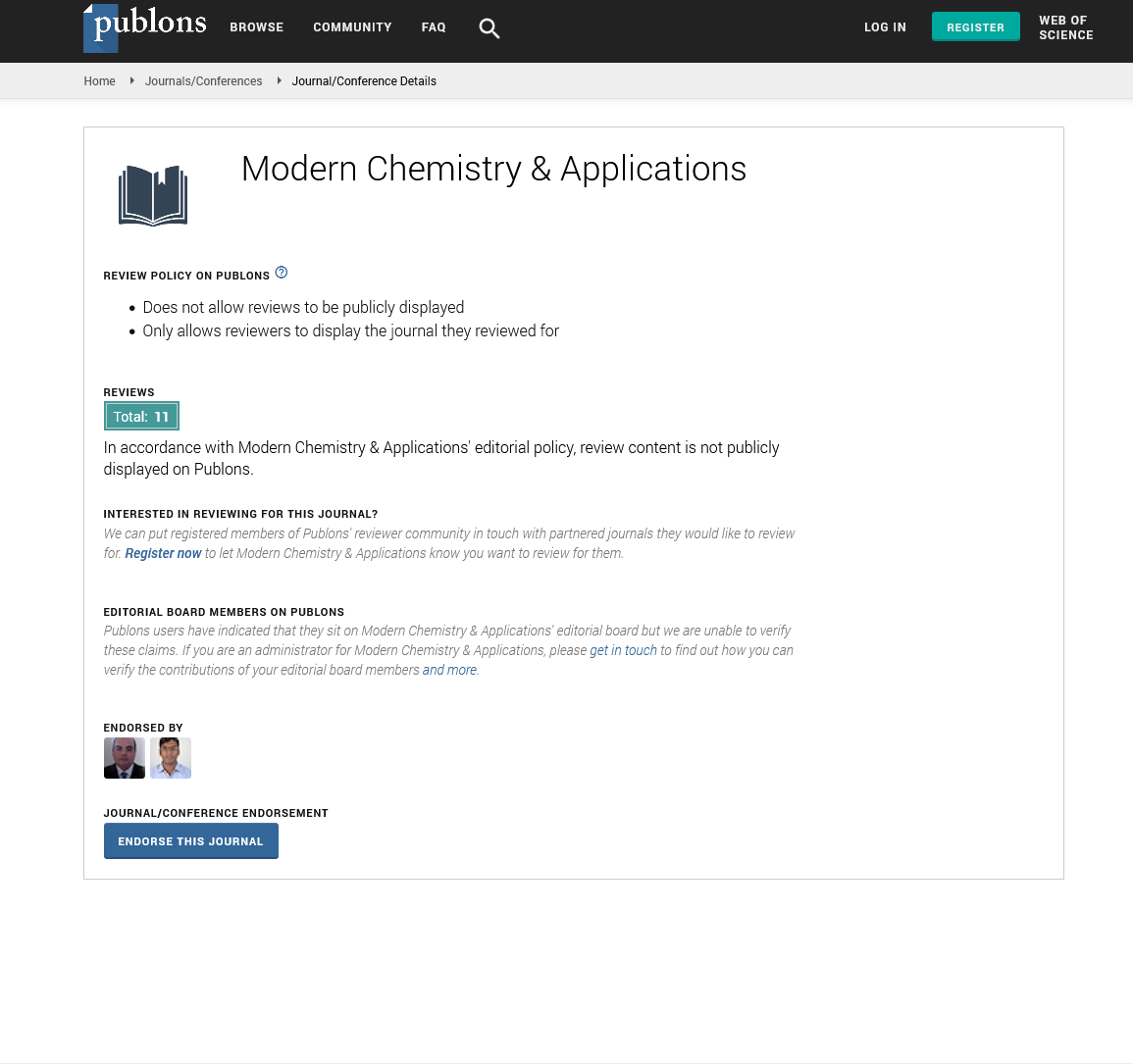Indexed In
- Open J Gate
- JournalTOCs
- RefSeek
- Hamdard University
- EBSCO A-Z
- OCLC- WorldCat
- Scholarsteer
- Publons
- Geneva Foundation for Medical Education and Research
- Google Scholar
Useful Links
Share This Page
Journal Flyer

Open Access Journals
- Agri and Aquaculture
- Biochemistry
- Bioinformatics & Systems Biology
- Business & Management
- Chemistry
- Clinical Sciences
- Engineering
- Food & Nutrition
- General Science
- Genetics & Molecular Biology
- Immunology & Microbiology
- Medical Sciences
- Neuroscience & Psychology
- Nursing & Health Care
- Pharmaceutical Sciences
Opinion Article - (2023) Volume 11, Issue 2
Aspects of Ionization Techniques in High Energy Electrons
Ming Chin*Received: 27-Mar-2023, Manuscript No. MCA-23-21131; Editor assigned: 29-Mar-2023, Pre QC No. MCA-23-21131 (PQ); Reviewed: 14-Apr-2023, QC No. MCA-23-21131; Revised: 21-Apr-2023, Manuscript No. MCA-23-21131 (R); Published: 28-Apr-2023, DOI: 10.35248/2329-6798.23.11.407
Description
Analytical chemistry is a branch of chemistry that deals with the analysis of different types of samples to determine their chemical composition, structure, and properties. Ionization is a fundamental process that plays an important role in many analytical techniques, including mass spectrometry, chromatography, and electrophoresis. The process of ionization involves the removal or addition of electrons from an atom or molecule, resulting in the formation of charged particles called ions.
Electron Ionization (EI) is a gas-phase ionization technique widely used in analytical chemistry, particularly in mass spectrometry. EI involves the bombardment of a sample with high-energy electrons, causing the ejection of one or more electrons from the molecule, generating positive ions. The resulting positively charged ions are then separated and detected using mass spectrometry. This article discusses the principles of electron ionization, its advantages and disadvantages, and its applications in analytical chemistry.
EI is a hard ionization technique that uses high-energy electrons, typically in the range of 70-150 Electron Volts (eV), to ionize molecules in the gas phase. Vaporization sample is vaporized to produce a gas-phase molecule. In ionization, sample is bombarded with high-energy electrons, which ionize the molecule by removing one or more electrons. In fragmentation the ionized molecule undergoes extensive fragmentation, producing a series of smaller fragments. The fragmentation patterns are characteristic of the molecule, making EI useful for structural identification. Ion Detection process results the ions separated based on their mass-to-charge ratio (m/z) using mass spectrometry and detected.
Electron ionization is a widely used gas-phase ionization technique in mass spectrometry. It involves the bombardment of a sample with high-energy electrons, causing the ejection of one or more electrons from the molecule, generating positive ions. EI is a hard ionization technique that produces highly energetic ions that can cause extensive fragmentation, making it difficult to determine the molecular weight of the parent ion. However, EI is highly sensitive, selective, and widely applicable, making it a valuable tool in analytical chemistry for the analysis of volatile samples.
Chemical Ionization (CI) is a gas-phase ionization technique that is commonly used in mass spectrometry for the analysis of small molecules. CI is a soft ionization technique that uses a reagent gas, typically methane or ammonia, to ionize the sample molecule.
CI involves the interaction of a reagent gas with the sample molecule to form a reagent ion. The reagent ion then interacts with the sample molecule to form a series of product ions.
The reagent gas is ionized by electron impact, producing a positively charged reagent ion (R+) process as reagent gas ionization. Formation of reagent ion/molecule complexes reacts with the sample molecule to form a complex ion (M+R+). This process is exothermic and typically occurs at low energy, resulting in minimal fragmentation. The complex ion undergoes fragmentation, producing a series of smaller fragment ions that are characteristic of the molecule known as Fragmentation.These fragment ions are then separated and detected using mass spectrometry. Chemical Ionization (CI) is particularly useful for analyzing compounds that are thermally labile or have high molecular weights, as it produces less fragmentation compared to Electron Ionization (EI).
Citation: Chin M (2023) Aspects of Ionization Techniques in High Energy Electrons. Modern Chem Appl. 11:407.
Copyright: © 2023 Chin M. This is an open-access article distributed under the terms of the Creative Commons Attribution License, which permits unrestricted use, distribution, and reproduction in any medium, provided the original author and source are credited.


